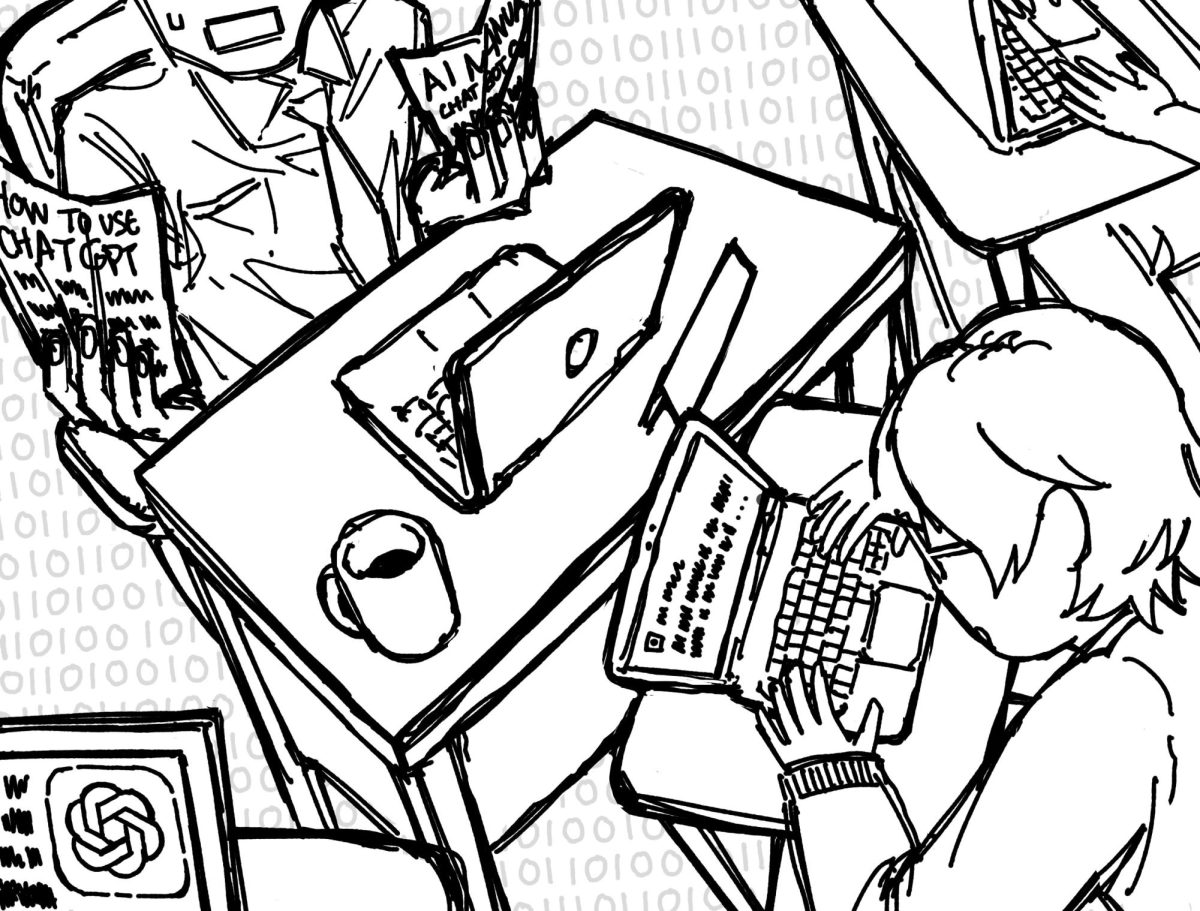In January, the Central Times published an editorial assessing the risks and potentials of the then-new ChatGPT, calling for teachers at Central to be given time to learn more about AI.
On Oct. 4, our wish was granted: time that would usually be used for a faculty meeting was instead given to teachers in order to allow them to complete an introductory AI training course.
The day before, a five-minute video was shown to students in homerooms, explaining how to set up an OpenAI (the company that makes ChatGPT) account and teaching students how to use AI responsibly.
The Central Times Editorial Board commends Central and District 203 on their efforts to educate students and staff about AI.
It is important, however, that the school and district know that their work is not yet done; the pace at which AI evolves and its importance means that continued education and adaptation will be needed.
It seems like a new company comes out with a new AI program every week, be it Google and their Bard, Microsoft and their new Bing or OpenAI and GPT 4. New programs are constantly coming out and old programs are constantly being updated.
Educating teachers on the currently existing technology is certainly important, but the capabilities of AI programs will continue to grow at a lightning-fast rate for the foreseeable future, meaning whatever teachers learn now will likely be out of date soon.
The training course given to teachers can be completed in roughly in hour. If all of the nuances of the ethical issues and and applications to different types of classrooms can be consolidated into one hour then every district in the world would be using AI. Even though it was an introductory lesson, one hour doesn’t equip teachers with enough information, especially in regards to a topic where much of the student population could be teaching them.
If the school wants teachers to understand and effectively implement AI, then the learning can’t stop now; AI education for teachers must be a regular and recurring process. It also need to occur for teachers and students simultaneously.
AI is unlike other issues in the sense that students have a step up on teachers. Despite this, both groups still need education. A five minute video or an hour long course is not enough.
The speed at which AI evolves also means that District 203 cannot tether itself to one AI platform.
The focus of the video shown to students in Homeroom was entirely on ChatGPT, but as already mentioned, other programs are out there. The district needs to stay aware of the capabilities of other programs, and be willing to shift away from ChatGPT if another chatbot becomes more powerful.
Likewise, the current AI-adjacent programs the district uses will need to be updated, especially turnitin.com’s AI writing detector used to identify cheating. Members of this editorial board have already had some of our human-written essays flagged as 60, 70 or even 80% AI generated (Even this editorial had portions marked as “written by AI”).
The district will need to constantly be looking for better technologies to detect AI use, especially when turnitin.com is so dysfunctional.
No matter how AI changes in the future, though, one thing is certain: it is here to stay.
AI is going to be something our generation will live with for the rest of our lives. Having an understanding of how to ethically and properly use AI programs will become an essential skill, in the same way that knowing how to use the internet is now.
So again, this editorial board implores Central’s administration and District 203 as a whole to devote far more time to educating both students and staff on AI. The five minute presentation given to all students in Homeroom was certainly a start, but we can’t stop there. Be it more homeroom sessions or incorporation into media literacy and school curricula, further education is needed.




